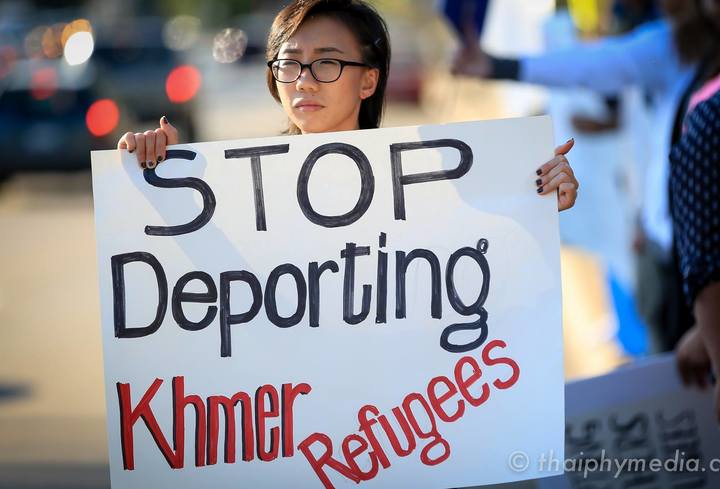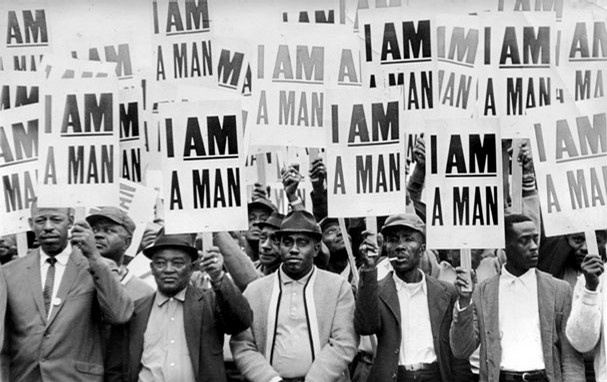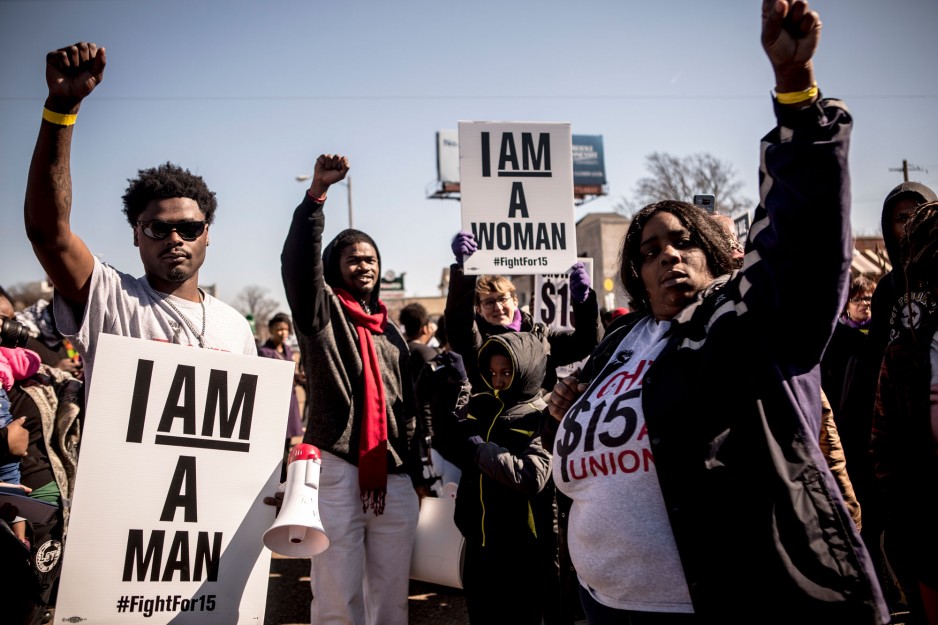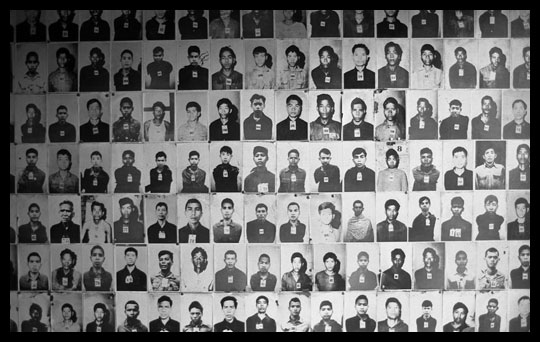
By Sina Sam* and Soya Jung
Today, the United States is scheduled to deport 43 Khmer refugees on a flight from El Paso, Texas to Cambodia. Some reportedly have significant mental and physical disabilities. The fact that these deportations are taking place today, on the 50th anniversary of the murder of Dr. Martin Luther King, Jr. in Memphis, Tennessee, is a cruel irony. King’s assassination came exactly one year after delivering his Beyond Vietnam speech at Riverside Church in New York City, in which he methodically traced connections between the U.S. war in Southeast Asia, and entrenched poverty and racism in the United States. He warned that these “giant triplets” of militarism, capitalism, and racism formed a blueprint for “violent co-annihilation” and called for a spiritual revolution of values fueled by a deep and all-embracing love.
King had been in Memphis supporting striking black sanitation workers who were demanding a union, better pay, safe working conditions, and basic human dignity. Every day for two months, workers marched from Clayborn Temple to Memphis City Hall facing down police dogs, shotguns, mace, and tear gas, wearing signs that defiantly declared: “I AM A MAN.” The strike became a driving force behind Dr. King’s Poor People’s Campaign, a multiracial movement to end poverty, racism, and war. Because that movement was cut short by his assassination 50 years ago, today we have a New Poor People’s Campaign, in which working poor people in the south and across the country are making the same demands that the sanitation workers made in 1968. Today, workers carry signs declaring, “I AM A MOTHER” and “I AM STRONG.”


Today we also have an unprecedented deportation machine, sending migrants forced to leave their homes because of U.S. policies back to sites of colonial brutality. In 1968, the U.S. military was laying the groundwork for what would become one of the greatest crimes of the 20th century: the Cambodian genocide by Pol Pot’s Khmer Rouge regime. While Pol Pot’s communist insurgency was still nascent, U.S. President Richard Nixon escalated his bombing campaign in Cambodia. The Khmer Rouge used the devastation of the U.S. airstrikes to Khmer people and their land as the main theme of their propaganda, as well as a 1970 U.S.-backed coup that replaced Cambodia’s Prince Norodom Sihanouk with a right-wing government. This provided Pol Pot with a powerful recruitment strategy, drawing support from Khmer peasants as well as from North Vietnam against U.S. imperialism. But once in power, he oversaw the genocide of his own people. Dr. King would have been heartbroken and enraged, if not surprised, to learn that the war he so courageously opposed would lead not only to death and destruction during the war itself, but also to the deaths of 1.7 million Khmer people between 1975 and 1979 under a U.S.-backed Khmer Rouge regime – and now, to the deportation of Khmer refugees.

There is no doubt that our inability to end the “giant triplets” that King decried has placed us on a path of “violent co-annihilation”. The climate crisis, the crisis of unprecedented inequality, the political crisis of rising xenophobia and authoritarianism are key features of today’s existential threats to humanity and the planet. Ongoing military interventions and war, the shredding of public safety net programs, intensified policing and criminalization, and trade policies fueling a global race to the bottom in terms of wages and working conditions have marked the last 50 years since King’s death. One symptom of these conditions has been the election of Donald Trump and the rise of authoritarian right-wing movements arguing for the redemption of white American workers. Changing U.S. demographics and growing economic insecurity have been fodder for Far Right demagogues to blame immigrants and people of color for the declining wages of whiteness.
The U.S. and Cambodia deportation agreement is getting worse under this administration. – Sophea Hang, 1Love Cambodia
A recent United Nations investigation into extreme poverty in the United States showed that while the rise in poverty disproportionately affects people of color and women, it also encompasses large swaths of white Americans. Forty million Americans now live in poverty, nearly half of them in deep poverty, and the United States has the highest child poverty rate among so-called “developed” nations. America’s public rationale for its war machine has persistently been to spread democracy and freedom throughout the world by containing the threats of communism and terrorism, thus protecting the American Dream. Yet ongoing U.S. militarism has failed to prevent the rapid growth of inequality in the world. In the United States, according to the UN report, that inequality is marked by problems like homelessness, unsafe sanitation and sewage disposal practices, police surveillance, and the criminalization and harassment of the poor. The report found that hookworm, once thought to be a problem limited to nations in the Global South with poor sanitation, has reemerged in impoverished places like Lowndes County, Alabama.
The causes of these problems are not immigrants and refugees. Their growing presence in the United States and western European countries is a symptom, not a cause, of wealth-hoarding changes in U.S. and international economic and foreign policies. In the case of Cambodia 50 years ago, U.S. efforts to defeat communism in Southeast Asia led Nixon to bomb Cambodia, a country that had remained neutral in the U.S. war against North Vietnam, in order to cut off supply lines for the North Vietnamese army. Such military decisions were what allowed the Khmer Rouge to rise and eventually to eliminate over 20% of the Cambodian population. Now, the children who arrived here as refugees because of those decisions are being sent back to Cambodia as adults, to a country they have never known.

Chamroeun Phan is one of the eight Khmer refugees in Minnesota who were detained by ICE starting in August 2016, known as “the Minnesota Eight” or “MN8”. Following intense community pressure through #ReleaseMN8, ICE released him and two others last year. The other five have been deported to Cambodia. In response to today’s deportations, Chamroeun’s sister, Montha A. Chum, said that the aggressive publicity campaign and community organizing that the MN8 have done has driven ICE to change its tactics. “Class action lawsuits and public campaigns like #ReleaseMN8 are affecting how ICE responds,” she said. “Before 2016, Minnesota folks would receive letters to go in for their check-ins, or just know to go once or twice a year. But now… ICE is trying to minimize the time impacted families have to organize and advocate for themselves and their loved ones.”
Tin Nguyen, attorney and activist with the Southeast Action Coalition in North Carolina, described the confusion caused by sudden changes in ICE tactics. Advocates knew that the United States had scheduled a flight this week to deport people to Southeast Asia, but believed that it would carry just the 31 people who had gotten travel documents from the Cambodian embassy in December. However, they learned just days ago that the embassy had issued a new batch of travel documents, but no one had a list of names. People who had been told that they were at least temporarily safe from deportation are now being detained with no notice. One of Nguyen’s clients who had been released from detention was suddenly re-arrested by ICE. When Nguyen asked why, ICE officials simply answered, “Things changed.”
“Just being an organized community of lawyers, activists, community members, and those affected, being able to inform each other of what’s happening, that’s how we fight ICE. That’s the only way that we will know,” Nguyen said. “It’s like the Fugitive Slave Act right now. Are you a free person of color, or not? If not, they will just take you.”
Still, Cambodian communities who have been battling deportation since 2002 have learned that raising visibility and keeping the public pressure on is key. Women and queer people have been doing the frontline and backend defense and organizing work in these communities, and many organizations have deep ties with various projects at the intersection of gender, race, and poverty.
“I feel MN8 has been successful in the release of some of our family members because we went public, deciding we had nothing to lose but our families… taking steps to get help from anyone that would listen to us, and to do it without any shame or fear,” said Chum. “A lot of folks with these orders (of deportation) are worrying about surviving and working to support their families now, keeping a low profile, but with the administration’s ramped-up attacks on immigrant families, focusing on those things will not help keep your families together or safe,” she said. “We want to encourage folks to seek help now… Once detained, it is even harder now for you to file (for immigration relief or) for the care of your children if something happens to you. If you wait to ask for help, it may be too late if ICE takes you away.”
I feel MN8 has been successful in the release of some of our family members because we went public, deciding we had nothing to lose but our families… taking steps to get help from anyone that would listen to us, and to do it without any shame or fear. – Montha A. Chum
Since Cambodian deportations began in 2002, 1Love Movement and other organizations within the Southeast Asian Freedom Network have done strategic cross-border organizing to support those arriving in Cambodia and to advocate for an end to deportations on both ends of the deportation pipeline. As a result, today there is a group of Khmer deportees preparing to receive those scheduled to arrive in Cambodia tomorrow. The numbers are growing, with a total of some 200 people expected to be deported to Cambodia this year. In comparison, there have been 760 returnees over the past 15 years.
Sophea Hang, a member of 1Love Cambodia Core, said, “It’s very important that we let the world know that the U.S. and Cambodia deportation agreement is getting worse under this administration. Not only are Cambodian Americans separated from their families, they will be in a foreign land with no adequate services or treatment for their conditions.”
Border enforcement and deportations are failed responses to the many crises we face today, yet they will continue if we do not keep the pressure on to stop them. For people who are facing deportation, activists like Chum encourage people to reach out for help. “There are so many incredible resources available,” she said. “Families who are scared to come forward need to understand there is nothing to lose if you already have a final order of deportation. The best thing you can do for your family is to start looking into your options now. There are people and organizations who can help.”
RESOURCES:
To support the immediate needs of deportees in Cambodia, please contact and donate to 1Love Cambodia.
For legal and advocacy assistance with deportation cases, please contact Asian Americans Advancing Justice – Asian Law Caucus, San Francisco, CA by calling (800) 867-3126, or contact the Southeast Asia Resource Action Center.
For information on how to support organizing against deportations, please contact the Southeast Asian Freedom Network.
Other community groups active in this struggle include:
- Asian Prisoner Support Committee, Oakland, CA
- Formerly Incarcerated Group Healing Together (F.I.G.H.T.), Seattle, WA
- Freedom Inc., Madison, WI
- Khmer Girls in Action (KGA), Long Beach, CA
- ManForward, Minneapolis, MN
- Mekong NYC, Bronx, NY
- ReleaseMN8, Minneapolis, MN
- Providence Youth Student Movement (PrSYM), Providence, RI
- Southeast Asian Coalition (SEAC), Charlotte, NC
- VietLead, Philadelphia, PA